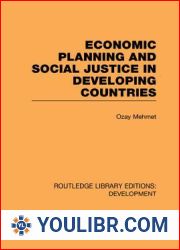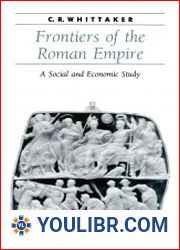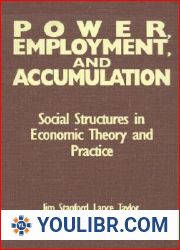
BOOKS - Social Protection vs. Economic Flexibility: Is There a Tradeoff? (National Bu...

Social Protection vs. Economic Flexibility: Is There a Tradeoff? (National Bureau of Economic Research Comparative Labor Markets Series)
Author: Rebecca M. Blank
Year: August 15, 1994
Format: PDF
File size: PDF 26 MB
Language: English
Year: August 15, 1994
Format: PDF
File size: PDF 26 MB
Language: English
Social Protection vs Economic Flexibility: Is There a Tradeoff? In today's rapidly changing world, technology evolution has become a crucial aspect of human survival and prosperity. As the Clinton administration considers major overhauls in health insurance, welfare, and labor market regulation, it is essential for economists and policymakers to comprehend the impact of social and welfare programs on employment rates. This book, "Social Protection vs Economic Flexibility: Is There a Tradeoff?" delves into the intricacies of labor market flexibility and its relationship with social protection programs. The authors explore the effects of various programs such as social security, income transfers, child care, housing policies, and daycare and maternity leave policies on employment mobility and job stability. The book begins by posing a fundamental question: Does tying health insurance to employment limit job mobility? To answer this, the authors examine diverse data sets across different countries, including Western Europe, the United States, and Japan. They find that social protection programs do not significantly affect labor market flexibility, but rather, they play a vital role in ensuring the well-being of workers and their families. The authors argue that while social protection policies may provide short-term benefits, they can also hinder long-term economic growth and development. One of the primary concerns of the book is the need for developing a personal paradigm for perceiving the technological process of modern knowledge.
Социальная защита против экономической гибкости: есть ли компромисс? В современном быстро меняющемся мире эволюция технологий стала важнейшим аспектом выживания и процветания человека. Поскольку администрация Клинтона рассматривает серьезные реформы в области медицинского страхования, социального обеспечения и регулирования рынка труда, для экономистов и политиков важно понять влияние социальных и социальных программ на уровень занятости. В этой книге «Социальная защита против экономической гибкости: есть ли компромисс?» рассказывается о тонкостях гибкости рынка труда и его связи с программами социальной защиты. Авторы изучают влияние различных программ, таких как социальное обеспечение, трансферты доходов, уход за детьми, жилищная политика, а также политика дневного ухода и отпуска по беременности и родам, на мобильность занятости и стабильность работы. Книга начинается с постановки фундаментального вопроса: Ограничивает ли привязка медицинского страхования к занятости мобильность работы? Чтобы ответить на это, авторы изучают различные наборы данных в разных странах, включая Западную Европу, Соединенные Штаты и Японию. Они считают, что программы социальной защиты не оказывают существенного влияния на гибкость рынка труда, а скорее, играют жизненно важную роль в обеспечении благополучия работников и их семей. Авторы утверждают, что, хотя политика социальной защиты может обеспечить краткосрочные выгоды, она также может препятствовать долгосрочному экономическому росту и развитию. Одна из первостепенных забот книги - необходимость выработки личностной парадигмы восприятия технологического процесса современного знания.
Sozialschutz versus wirtschaftliche Flexibilität: Gibt es einen Kompromiss? In der heutigen sich schnell verändernden Welt ist die Entwicklung der Technologie zu einem entscheidenden Aspekt des menschlichen Überlebens und Wohlstands geworden. Da die Clinton-Regierung ernsthafte Reformen in den Bereichen Krankenversicherung, Sozialversicherung und Arbeitsmarktregulierung in Betracht zieht, ist es für Ökonomen und politische Entscheidungsträger wichtig, die Auswirkungen von Sozial- und Sozialprogrammen auf die Beschäftigungsquote zu verstehen. In diesem Buch „Sozialschutz versus wirtschaftliche Flexibilität: Gibt es einen Kompromiss?“ geht es um die Feinheiten der Arbeitsmarktflexibilität und ihren Zusammenhang mit Sozialschutzprogrammen. Die Autoren untersuchen die Auswirkungen verschiedener Programme wie Sozialversicherung, Einkommensübertragungen, Kinderbetreuung, Wohnungspolitik sowie Tagespflege- und Mutterschutzpolitik auf die Beschäftigungsmobilität und die Arbeitsplatzstabilität. Das Buch beginnt mit einer grundsätzlichen Frage: Schränkt die Bindung der Krankenversicherung an die Beschäftigung die Mobilität der Arbeit ein? Um dies zu beantworten, untersuchen die Autoren verschiedene Datensätze in verschiedenen Ländern, darunter Westeuropa, die Vereinigten Staaten und Japan. e sind der Ansicht, dass Sozialschutzprogramme keine wesentlichen Auswirkungen auf die Flexibilität des Arbeitsmarktes haben, sondern vielmehr eine entscheidende Rolle für das Wohlergehen der Arbeitnehmer und ihrer Familien spielen. Die Autoren argumentieren, dass die Sozialschutzpolitik zwar kurzfristige Vorteile bieten kann, aber auch langfristiges Wirtschaftswachstum und Entwicklung behindern kann. Eines der Hauptanliegen des Buches ist die Notwendigkeit, ein persönliches Paradigma für die Wahrnehmung des technologischen Prozesses des modernen Wissens zu entwickeln.
''
Sosyal Koruma ve Ekonomik Esneklik: Bir Takas Var mı? Günümüzün hızla değişen dünyasında, teknolojinin evrimi, insanın hayatta kalması ve refahının kritik bir yönü haline gelmiştir. Clinton yönetimi sağlık sigortası, sosyal güvenlik ve işgücü piyasası düzenlemelerinde büyük reformları göz önünde bulundurduğundan, ekonomistlerin ve politika yapıcıların sosyal ve sosyal programların istihdam oranları üzerindeki etkisini anlamaları önemlidir. Bu kitap, "Sosyal Koruma ve Ekonomik Esneklik: Bir Ticaret Var mı?", işgücü piyasası esnekliğinin inceliklerini ve sosyal koruma programlarıyla ilişkisini araştırıyor. Yazarlar, Sosyal Güvenlik, gelir transferleri, çocuk bakımı, konut politikaları ve günlük bakım ve doğum izni politikaları gibi çeşitli programların istihdam hareketliliği ve iş istikrarı üzerindeki etkisini incelemektedir. Kitap temel bir soru sorarak başlıyor: Sağlık sigortasını istihdama bağlamak iş hareketliliğini sınırlıyor mu? Bunu cevaplamak için, yazarlar Batı Avrupa, Amerika Birleşik Devletleri ve Japonya da dahil olmak üzere farklı ülkelerdeki farklı veri kümelerini inceliyorlar. Sosyal koruma programlarının işgücü piyasasının esnekliğini önemli ölçüde etkilemediğine, aksine işçilerin ve ailelerinin refahını sağlamada hayati bir rol oynadığına inanıyorlar. Yazarlar, sosyal koruma politikalarının kısa vadeli faydalar sağlayabilirken, uzun vadeli ekonomik büyüme ve kalkınmayı da engelleyebileceğini savunuyorlar. Kitabın temel kaygılarından biri, modern bilginin teknolojik sürecinin algılanması için kişisel bir paradigma geliştirme ihtiyacıdır.
الحماية الاجتماعية مقابل المرونة الاقتصادية: هل هناك مقايضة ؟ في عالم اليوم سريع التغير، أصبح تطور التكنولوجيا جانبًا مهمًا لبقاء الإنسان وازدهاره. بينما تنظر إدارة كلينتون في الإصلاحات الرئيسية في التأمين الصحي والضمان الاجتماعي وتنظيم سوق العمل، من المهم للاقتصاديين وصانعي السياسات فهم تأثير البرامج الاجتماعية والاجتماعية على معدلات التوظيف. يستكشف هذا الكتاب، «الحماية الاجتماعية مقابل المرونة الاقتصادية: هل هناك مقايضة ؟»، تعقيدات مرونة سوق العمل وعلاقتها ببرامج الحماية الاجتماعية. يدرس المؤلفون تأثير البرامج المختلفة، مثل الضمان الاجتماعي، وتحويلات الدخل، ورعاية الأطفال، وسياسات الإسكان، وسياسات الرعاية النهارية وإجازات الأمومة، على التنقل الوظيفي والاستقرار الوظيفي. يبدأ الكتاب بطرح سؤال أساسي: هل ربط التأمين الصحي بالتوظيف يحد من التنقل الوظيفي ؟ للإجابة على هذا، يدرس المؤلفون مجموعات بيانات مختلفة في بلدان مختلفة، بما في ذلك أوروبا الغربية والولايات المتحدة واليابان. وهم يعتقدون أن برامج الحماية الاجتماعية لا تؤثر بشكل كبير على مرونة سوق العمل، بل تلعب دورًا حيويًا في ضمان رفاهية العمال وأسرهم. يجادل المؤلفون بأنه في حين أن سياسات الحماية الاجتماعية يمكن أن توفر فوائد قصيرة الأجل، إلا أنها يمكن أن تعيق النمو الاقتصادي والتنمية على المدى الطويل. أحد الاهتمامات الرئيسية للكتاب هو الحاجة إلى تطوير نموذج شخصي لتصور العملية التكنولوجية للمعرفة الحديثة.
















































